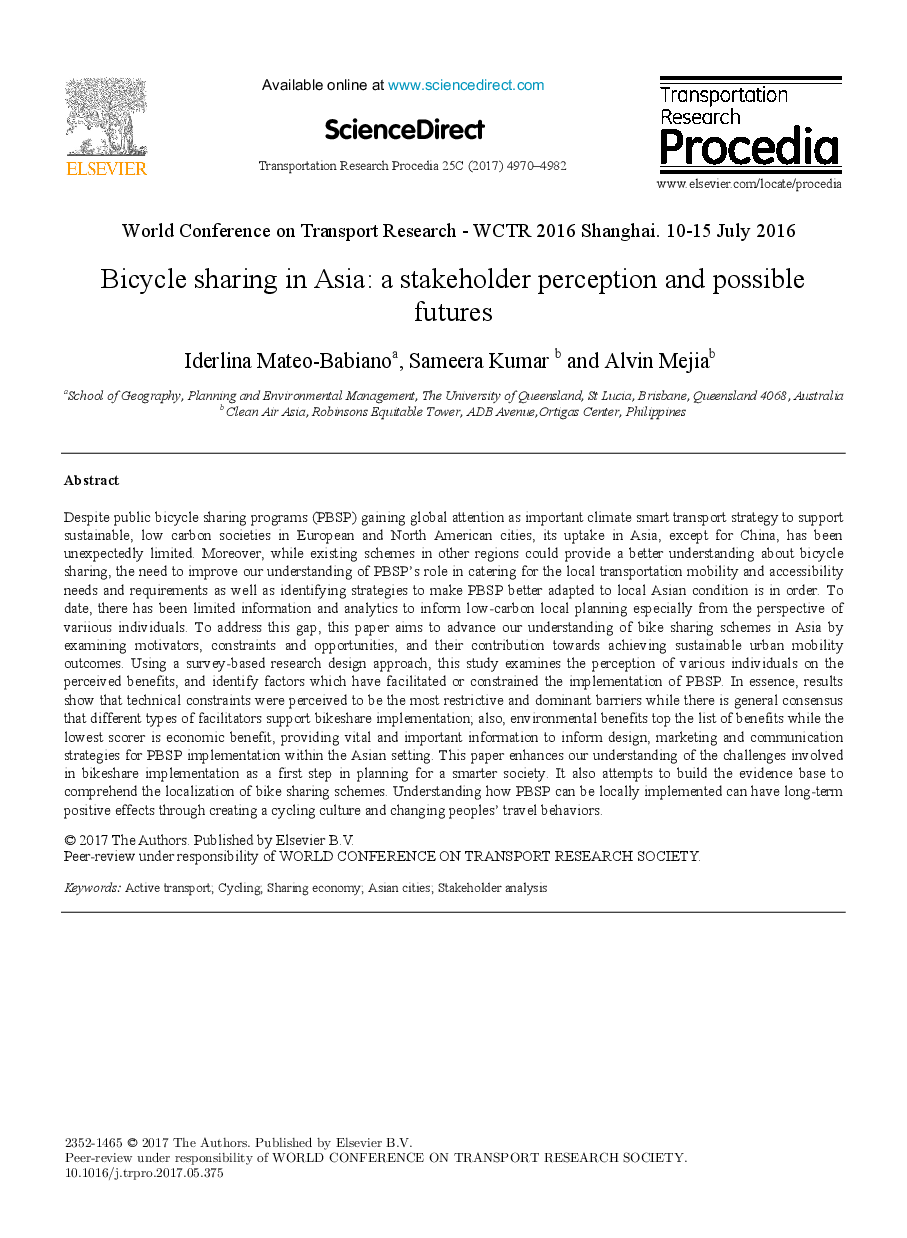ترجمه فارسی عنوان مقاله
به اشتراک گذاری دوچرخه در آسیا: درک ذینفعان و آینده ممکن است
عنوان انگلیسی
Bicycle sharing in Asia: a stakeholder perception and possible futures
| کد مقاله | سال انتشار | تعداد صفحات مقاله انگلیسی |
|---|---|---|
| 139768 | 2017 | 13 صفحه PDF |
منبع

Publisher : Elsevier - Science Direct (الزویر - ساینس دایرکت)
Journal : Transportation Research Procedia, Volume 25, 2017, Pages 4966-4978
ترجمه کلمات کلیدی
حمل و نقل فعال، دوچرخه سواری، به اشتراک گذاری اقتصاد، شهرهای آسیایی، تجزیه و تحلیل متقابل،
کلمات کلیدی انگلیسی
Active transport; Cycling; Sharing economy; Asian cities; Stakeholder analysis;

